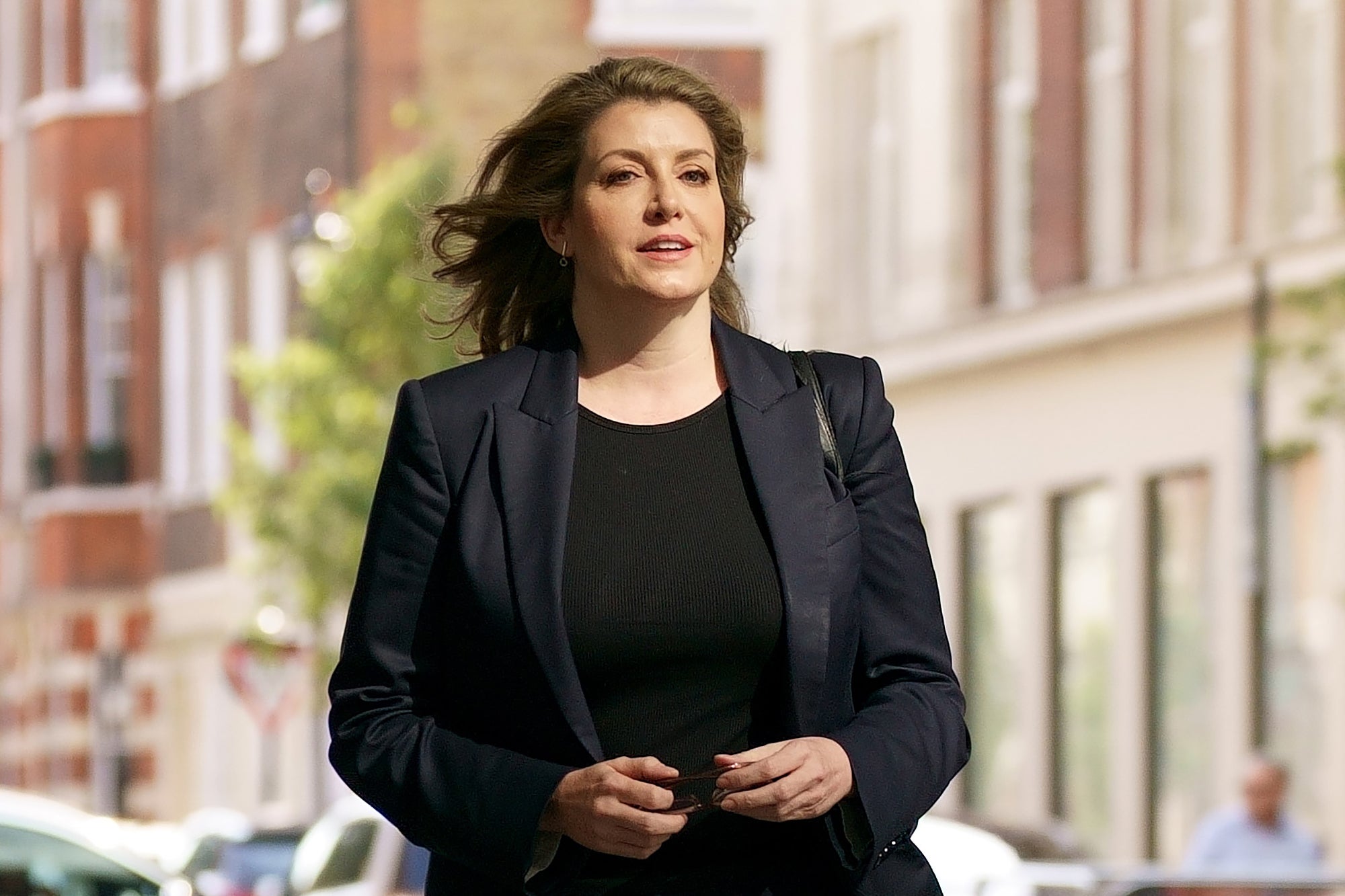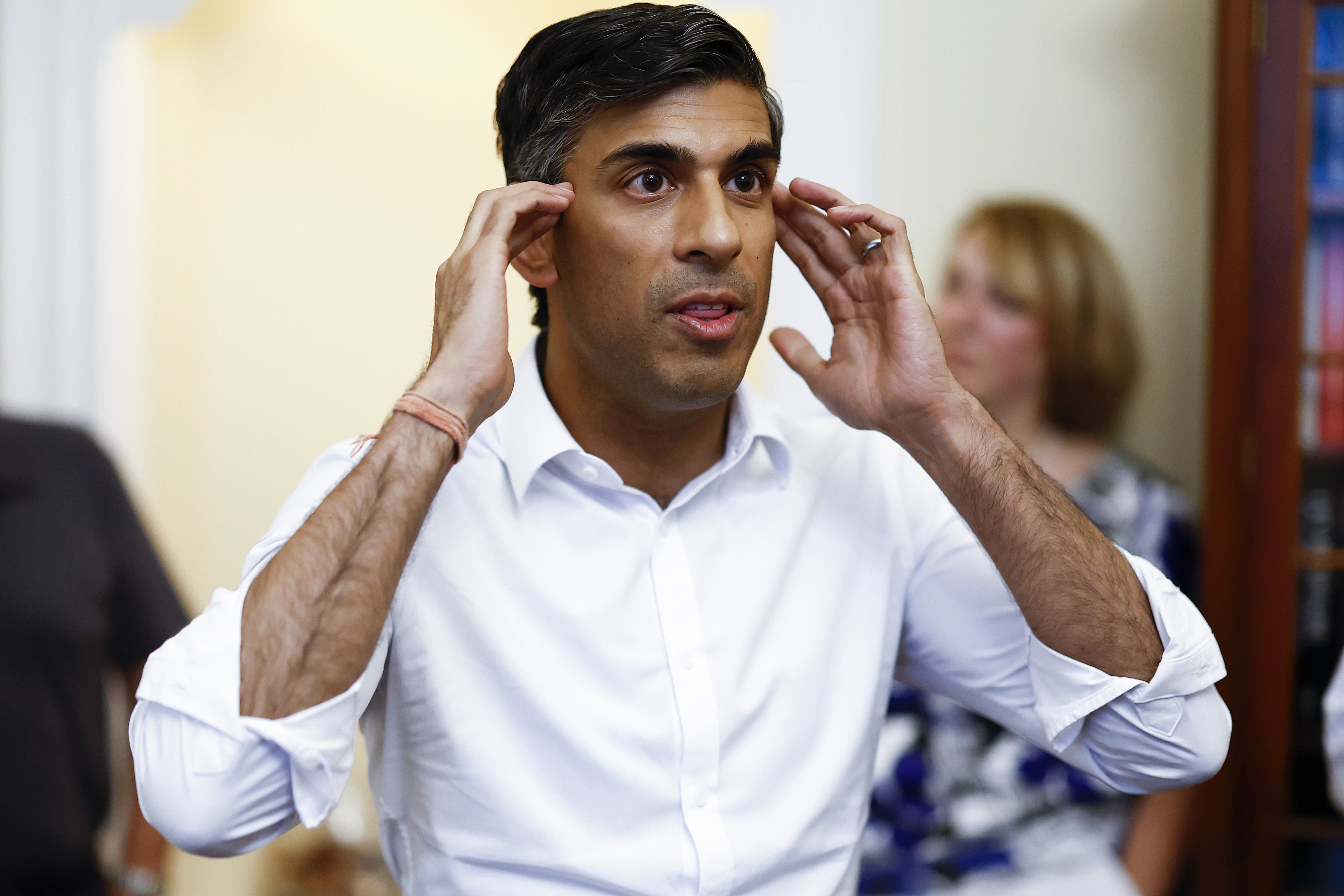Liz Truss backs away from rejection of cost of living crisis ‘handouts’
Calls for emergency budget to avert ‘financial timebomb’ for families
Your support helps us to tell the story
From reproductive rights to climate change to Big Tech, The Independent is on the ground when the story is developing. Whether it's investigating the financials of Elon Musk's pro-Trump PAC or producing our latest documentary, 'The A Word', which shines a light on the American women fighting for reproductive rights, we know how important it is to parse out the facts from the messaging.
At such a critical moment in US history, we need reporters on the ground. Your donation allows us to keep sending journalists to speak to both sides of the story.
The Independent is trusted by Americans across the entire political spectrum. And unlike many other quality news outlets, we choose not to lock Americans out of our reporting and analysis with paywalls. We believe quality journalism should be available to everyone, paid for by those who can afford it.
Your support makes all the difference.Liz Truss has been forced to back away from her rejection of cost of living “handouts” amid growing calls for an emergency budget to help families facing a “financial timebomb” this winter.
For the second time in a week – following her earlier U-turn on regional pay – supporters claimed that the Tory leadership frontrunner’s comments had been “misinterpreted”.
But leadership rival Rishi Sunak said the foreign secretary was “simply wrong” to rely on tax cuts rather than direct payments to help the millions of people struggling to pay energy bills.
He signalled that he planned another multibillion package of assistance if he were to become prime minister in September.
But the proposals of both candidates were dismissed as “absolutely inadequate” by Margaret Thatcher’s former energy secretary Lord Howell of Guildford.
With immediate action needed to see off “horrific” inflation that would “paralyse the lives of a vast number of families in this country”, the contenders’ promises of future relief were like Marie Antoinette saying “let them eat cake”, said the Tory peer.
Anti-poverty campaigners and experts have told The Independent that the new PM must immediately double the £15bn support package announced by Mr Sunak in May in order to avert searing hardship for millions of Britons this winter.
And Gordon Brown called for Sunak, Truss and prime minister Boris Johnson to agree an immediate emergency budget or risk “condemning millions of vulnerable and blameless children and pensioners to a winter of dire poverty”.
A report commissioned by the former Labour prime minister found that families will be up to £1,600 worse off this year, even after existing government support of up to £1,200 per household has been paid out.
The new report, carried out by Professor Donald Hirsch at Loughborough University, found that 13 million households – a fraction under half of the country – are at risk of fuel poverty after the next hike in the energy price cap to £3,700 or more in October.

“A financial timebomb will explode for families in October as a second round of fuel price rises in six months sends shockwaves through every household and pushes millions over the edge,” said Mr Brown.
If the prime minister and the contenders to replace him refused to put forward an emergency package, he said, “parliament should be recalled to force them to do so”.
Fears of a devastating cash crisis for families were fuelled by Thursday’s Bank of England forecast of inflation topping 13 per cent and a five-quarter recession.
And the cost of living was forced to the top of the agenda in the Tory leadership contest by Ms Truss’s comment that she would offer help by “lowering the tax burden, not giving out handouts”.
Mr Sunak hit back at her comments, saying: “It’s simply wrong to rule out further direct support at this time as Liz Truss has done. And, what’s more, her tax proposals are not going to help very significantly people like pensioners or those on low incomes who are exactly the kind of families that are going to need help.”
But trade minister Penny Mordaunt denied that Ms Truss had ruled out expanding direct payments.

The former Tory leadership candidate, who has thrown her weight behind the foreign secretary, said: “It’s not that she’s ruling out all future help; that’s a misinterpretation of what she said.
“What she is looking at, though, is enabling people to keep more of the money that they earn.
“It makes no sense to take money off of people and then to give it back in very, very complicated ways.
“We need to simplify this and we need to ensure that households are as resilient as possible, and stopping taking large sums of tax from people is one way of doing that.”
Ms Truss has promised an emergency budget in September if she is elected Tory leader by 160,000 Conservative Party members.
But she has given no indication that this will include direct help with fuel bills, instead focusing on the “immediate” delivery of tax cuts totalling around £30bn.
It is understood that she will aim to implement the reversal of Mr Sunak’s 1.25 per cent hike to national insurance within days, rather than waiting until April as would normally be the practice. She also plans to scrap a corporation tax rise from 19 to 25 per cent, planned by the former chancellor for 2023, and suspend green levies on energy bills.
“Despite the Bank of England’s stark assessment this week, I do not believe in resigning our great country to managed decline or accepting the inevitability of a recession,” Ms Truss said.
“I would hit the ground running by bringing in an emergency budget, charting a firm course to get our economy growing in order to help fund our public services and NHS.”

Anti-poverty think tank the Joseph Rowntree Foundation warned that tax cuts were “a really ineffective way of getting money to those who need the help most”, because many of the poorest do not pay tax.
“Six pounds out of every seven that you would spend on scrapping the national insurance rise would go to the top half of the income distribution,” the foundation’s Katie Schmuecker told The Independent.
And Mr Sunak warned that premature tax cuts risked driving inflation yet higher.
“Putting £40bn-plus of borrowed money into an economy that’s seeing an inflation spiral does risk making it worse,” he said.
“It might be OK, but I think it means taking a gamble with people’s savings, their pensions, their mortgage rates. It’s not a gamble I’m prepared to take.”
The former chancellor said the public deserved “clear-eyed realism and not starry-eyed boosterism” on the issue. Tory MP Damian Hinds conceded the package of support Mr Sunak drew up as chancellor was not enough in these “extraordinarily difficult times”, and suggested more would come if he were to become prime minister.
Mr Hinds, a Sunak supporter, said: “Things have been getting worse even since that was put into place in terms of projections for what energy bills are going to be in future.
“He’s been clear that more may well be needed and and he is ready to do that as required.”




Join our commenting forum
Join thought-provoking conversations, follow other Independent readers and see their replies
Comments